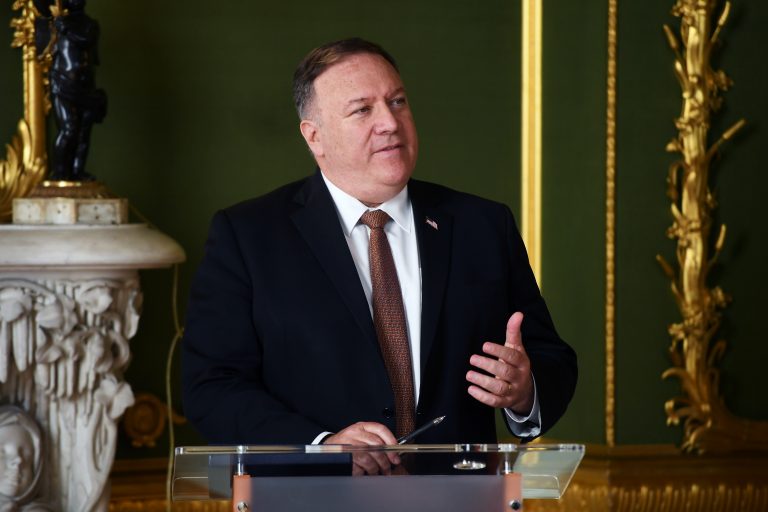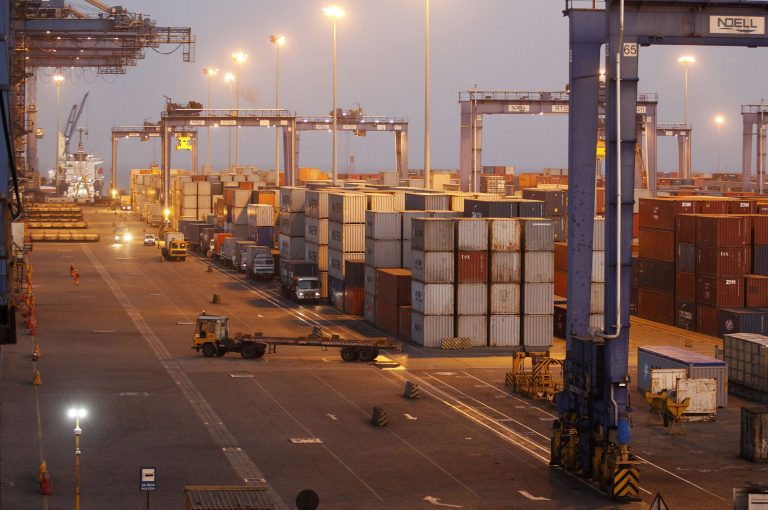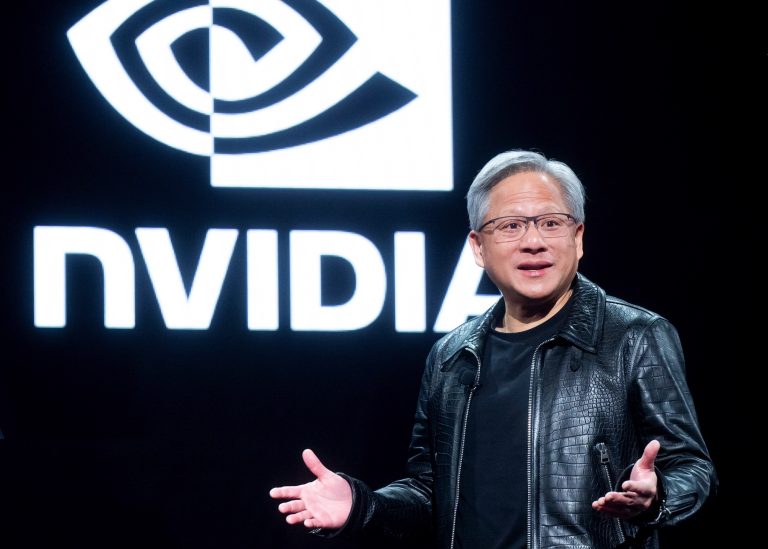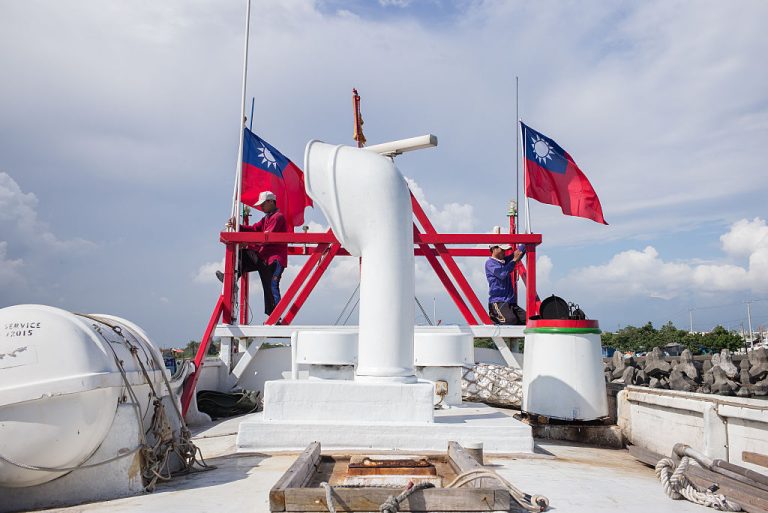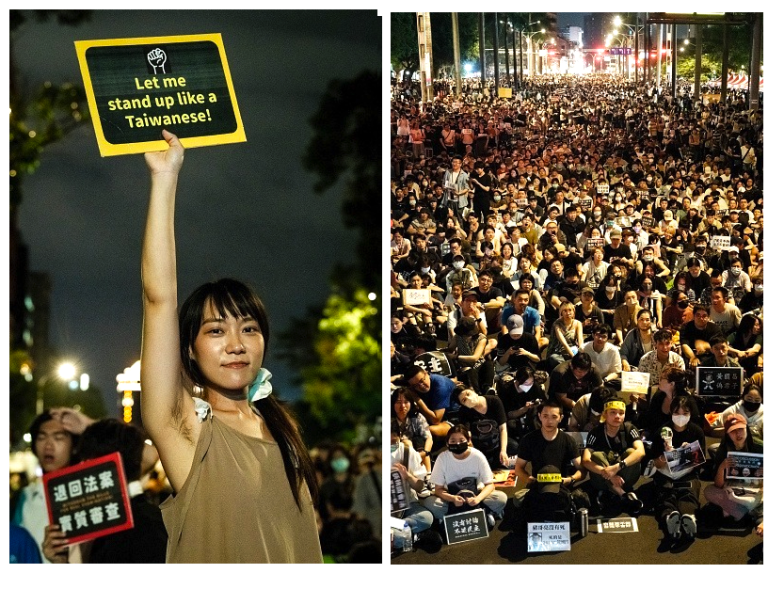Former U.S. Secretary of State Mike Pompeo, sanctioned by Communist China when he left office at the end of the Trump presidency, arrived in Taiwan on Wednesday, March 2 and referred to the self-ruling island as a “great nation” — irking Beijing in the process.
“It is wonderful to be here. I’ve been looking forward to coming to visit with the people of Taiwan for a very long time,” he told reporters upon arriving at the airport, according to Reuters.
“I’m so much looking forward to my trip to meet with business people, people from the government, people all across your great nation,” he added.
A sensitive red line for Beijing
The use of the word “nation” was notably used by Pompeo as the U.S. does not officially recognize Taiwan as a country under the “One China” policy, but continues to maintain diplomatic and military relations with the island, which is officially known as the Republic China (ROC).
The ROC, which once governed all of China, was forced off the mainland by communist rebels, who founded the People’s Republic of China (PRC).
Success
You are now signed up for our newsletter
Success
Check your email to complete sign up
Beijing does not recognize either the ROC or an independent Taiwan, insisting that any country wishing to pursue diplomatic relations with it must first break official ties with Taipei. This, in addition to the ROC’s expulsion from the U.N. half a century ago, has resulted in the island being isolated from the global community.
As a result, countries that have formed diplomatic ties with Taiwan have faced retaliation from Beijing. Most recently, Lithuania was targeted by the mainland Chinese regime after it decided to open a Taiwanese embassy in its capital of Vilnius in November 2021.
Though Beijing has indicated its preference for a peaceful “reunification,” it does not rule out military force and has vowed to claim Taiwan by any means necessary.
But Pompeo’s choice of words has extra meaning on this visit given Russia’s full-scale invasion of Ukraine, which the PRC has refused to condemn. The invasion of Ukraine, which has seen much of the country’s territory fall to Russia since hostitles commenced on Feb. 24, has raised widespread fears that Beijing could try a similar stunt with Taiwan.
Foreign policy experts have expressed concern that the situation unfolding in Ukraine could have “severe implications” for the Indo-Pacific region as it faces increasing assertiveness from the PRC, especially when it comes to the Taiwan issue.
READ MORE:
- Russian Invasion of Ukraine Casts an Ominous Shadow Over Taiwan
- Lithuania Facing Corporate Boycott Triggered by Beijing
Tsai: ‘cherish your hard-earned freedoms’
Taiwan president Tsai Ing-wen said on Monday that the Russian invasion of Ukraine offered a lesson and pledged to protect her country’s sovereignty, adding that it was her duty as president to unify the people of Taiwan and protect its democracy. Tsai also urged the public to cherish their hard-earned freedoms and human rights.
While speaking at a ceremony to mark the 75th anniversary of the 1947 massacre known as the “228 Incident,” she reminded Taiwanese citizens not to take their rights for granted but to join in their defense.
“We all see the people of Ukraine come together to fight against the invasion by a powerful country,” Tsai said. “The Ukrainian people have taught us that when we face any challenges, democracy and unity are the only option.”
Taiwan rejects the mainland regime’s territorial claim, noting that the PRC has never controlled the island and only its people can decide its future. Tsai also vowed to work more closely with allies in response to what she called China’s “growing military threat.”
As of press time, Tsai is scheduled to meet with Pompeo in Taipei on Thursday, where the two will discuss further strengthening of diplomatic relations. A high-ranking U.S. diplomat, Kelly Craft, was to visit Taiwan prior to the end of Trump’s presidency, but the visit was canceled at the last minute.
During a daily press briefing, PRC Foreign Ministry spokesman Wang Wenbin noted that Taiwan will only “get burned” in its attempts to solicit support from the U.S. and other allies for its independence.
US ‘stands firm’ behind commitment to Taiwan
During a recent delegation visit by former U.S. top security and defense officials, the American envoy reiterated its commitment to Taiwan and said collaboration between the two is stronger and more “expansive than ever before.”
Former chairman of the U.S. Joint Chiefs of Staff Mike Mullen, said during his visit to Taiwan last week, “The United States will continue to oppose any unilateral changes to the status quo and will continue to support a peaceful resolution of cross-strait issues, consistent with the wishes and best interests of the people of Taiwan.”



